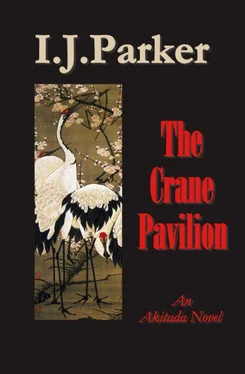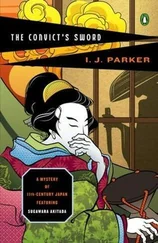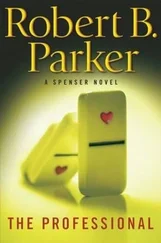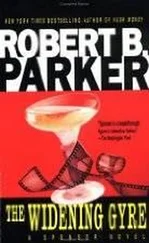I. Parker - The Crane Pavillion
Здесь есть возможность читать онлайн «I. Parker - The Crane Pavillion» весь текст электронной книги совершенно бесплатно (целиком полную версию без сокращений). В некоторых случаях можно слушать аудио, скачать через торрент в формате fb2 и присутствует краткое содержание. Жанр: Исторический детектив, на английском языке. Описание произведения, (предисловие) а так же отзывы посетителей доступны на портале библиотеки ЛибКат.
- Название:The Crane Pavillion
- Автор:
- Жанр:
- Год:неизвестен
- ISBN:нет данных
- Рейтинг книги:5 / 5. Голосов: 1
-
Избранное:Добавить в избранное
- Отзывы:
-
Ваша оценка:
- 100
- 1
- 2
- 3
- 4
- 5
The Crane Pavillion: краткое содержание, описание и аннотация
Предлагаем к чтению аннотацию, описание, краткое содержание или предисловие (зависит от того, что написал сам автор книги «The Crane Pavillion»). Если вы не нашли необходимую информацию о книге — напишите в комментариях, мы постараемся отыскать её.
The Crane Pavillion — читать онлайн бесплатно полную книгу (весь текст) целиком
Ниже представлен текст книги, разбитый по страницам. Система сохранения места последней прочитанной страницы, позволяет с удобством читать онлайн бесплатно книгу «The Crane Pavillion», без необходимости каждый раз заново искать на чём Вы остановились. Поставьте закладку, и сможете в любой момент перейти на страницу, на которой закончили чтение.
Интервал:
Закладка:
There was nothing of the sort here.
The huge roofed gate was closed and the gatekeeper’s window blocked by a piece of wood. Tora went to pound on the gate, shouting, “Ho! Anyone home? Open up.”
Nothing happened.
“Shall I try to climb in, sir?”
“Not yet. Knock again.”
Tora was still belaboring the heavy gate, when a tall, elderly gentleman came down the street. He was dressed in a fusty black robe, bareheaded, and leaning on a knobby stick. When he reached them, he stopped and watched Tora.
Tora had turned red with his efforts and now delivered a vicious kick to the gate. “No good, sir,” he said, turning away. “We’ll have to become thieves and climb over.”
The gentleman chuckled. “Or you could use the small gate,” he said gleefully. “We all do. Of course, your master may consider it beneath his dignity.” He cast a glance at Akitada’s fine clothes.
“Not at all,” Akitada said stiffly. “Lead the way, sir.”
The gentleman approached the small gate, which was cut into the larger one, poked it open with his stick, and stepped through. Akitada and Tora followed.
Inside, he paid them no further attention and strode off toward the main house.
Akitada took in the weedy gravel of the wide front courtyard, the massive center section of the main house with two galleries branching out toward its wings, and what must be service buildings to his left.
“A moment, sir,” he called after the gentleman. The man paused and looked over his shoulder. Akitada went after him and said, “I’m afraid I don’t know your name.”
Bushy gray eyebrows rose. “And I don’t know yours. Let’s leave well enough alone, shall we?” And the man started off again.
Akitada followed. “Please forgive me, sir, but I’m looking for someone who knew Lady Ogata.”
This time the man stopped and glowered at Akitada. “And what prurient curiosity brings you here?”
Taken aback, Akitada snapped, “I’m Sugawara Akitada.”
The eyebrows rose another fraction. “And what precisely should that tell me?”
Tora joined them. “Now look here, sir. What gives you the right to be rude to a man of my master’s standing?”
The man eyed him. Suddenly he smiled. The smile made him appear younger and almost charming. He said, “I’m older than you. At my age, I can get away with bluntness. You can’t, and neither can he.”
“Old people are supposed to have learned wisdom,” Tora pointed out angrily.
The man snorted and turned to walk away again. Tora was about to lay hands on him, but Akitada pulled him back. “Are you by chance the retired professor who lives here on the charity of the owner?”
The man kept going. “What if I am?”
“The abbot is an acquaintance of mine and has asked me to pay his tenants a visit. It seems to me the least you can do is answer a few questions.”
The man turned. “I see. Yes, I’m Professor Suketada.” He gave Akitada a long measuring glance, then nodded. “If you must be a nuisance, follow me. It’s hot in this sun, and I must conserve my energy. My room is just this way.”
Perhaps the comment about living on charity had shamed the professor. He seemed somehow shrunken, diminished in stature. He climbed the steps to the covered corridor and then walked to one of the wings of the mansion. There he paused among a row of doors. Inside was a smallish room. Shutters on the opposite side let in some light, and Akitada saw that most of the space was taken up by books and papers. These were stacked along the walls or piled on surfaces of stands and desks. One larger desk, its lacquer cracked, held more papers and writing utensils. A single tattered tatami mat lay in the middle of the room, and some bedding was rolled up in a corner. He saw no clothes chests, but against one wall stood a leaning clothes rack, heavily laden with robes and other paraphernalia of dress. All of it seemed to be of the same rusty black color as the professor’s current outfit.
“Have a seat,” he told them, gesturing to the mat. “I have no wine, but I’ve just bought a stuffed dumpling from a vendor. He claimed it contains fresh fish, but I doubt it.” He took a small package wrapped in oiled paper from his sleeve and sniffed it. It released a strong odor of rancid fish. “Do you want some?”
Akitada said quickly. “Thank you, we have just eaten. We need nothing.”
Their host looked relieved and placed the greasy package on a small, chipped tray.
Poverty, thought Akitada. Such extreme poverty that he is probably hungry most of the time. What must that be like for a man of his background? What could have brought a scholar so low?
Professor Suketada went over to the shutters and threw them wide. Light flooded in. Outside, the lush plants of the overgrown garden approached to within a few feet of the narrow ledge. “No candles or oil, but the sun will do for me,” he said, rubbing his hands. “I’m very happy here.”
Perhaps this comment was meant to take some of the sting out of being very poor and living on someone’s charity. He did not look at all happy.
After he came back to sit down with them, he and Akitada took each other’s measure. Close up, the professor looked worn, tired, and unhealthy. His skin was pale, his eyes red-rimmed, and his tall frame sagged. As if they had aged with his body, his shoes and clothes were not just threadbare; they had gaping holes. “Sugawara?” he said. “Didn’t you take a first at the university?”
Surprised, Akitada nodded. “A long time ago. I’m afraid I don’t recall you, sir.”
The professor’s eyes were watery. He blinked several times. “I don’t see too well, but I think you used to have a mustache then. I was very young myself. You were always chasing after women. Disgraceful, as I recall. You’re lucky the quality of your Chinese essays made up for it.”
“I don’t think …” Akitada paused, then guessed the mistake. “It might have been my father, sir. He was Sugawara Koretada.”
“Yes, yes. That’s the one.” He squinted at Akitada. “Yes, I was a mere child myself then. Anyway, good family. Honor your name, or you’ll come to this.” He gestured at his abode.
Akitada wondered again how the man had come to this. Professors who taught at the Imperial University were well-born, with family money and connections in addition to their stipend.
But his purpose was to discover what had happened to Lady Ogata. Or more precisely, what role Tasuku had played in her death. He considered how to bring up the subject.
The professor eyed his dumpling longingly. “Now, what do you want?” he said, his voice impatient.
“I used to come here when Abbot Genshin was still Takashina Tasuku. We were at the university together. As I recall, he, too, had an interest in women.”
Suketada frowned. “Perhaps.”
“You have had a death here recently. A Lady Ogata died. I believe, she, too, was a permanent resident in the Takashina mansion.”
The professor was silent for a moment. Then he said, “Under the circumstances, there’s nothing permanent about such a residency. She’s dead, and I won’t be around much longer myself. Young man, get to the point. I thought you had questions to ask. So far you’ve only uttered statements.”
“Well then, what was Abbot Genshin’s relationship with the dead woman?”
Suketada stared at him. “I have no idea. Do you mean were they lovers?”
Akitada was becoming frustrated. “Well, were they?”
There was a moment’s silence, then Suketada’s lip twitched. “Do you seriously expect me to blacken the character of the man on whose charity I live here?”
Akitada flushed. “Forgive me. My question was clumsy. Let me explain. I’ve promised to find out what happened, why the lady would suddenly commit suicide. Can you throw some light on this?”
Читать дальшеИнтервал:
Закладка:
Похожие книги на «The Crane Pavillion»
Представляем Вашему вниманию похожие книги на «The Crane Pavillion» списком для выбора. Мы отобрали схожую по названию и смыслу литературу в надежде предоставить читателям больше вариантов отыскать новые, интересные, ещё непрочитанные произведения.
Обсуждение, отзывы о книге «The Crane Pavillion» и просто собственные мнения читателей. Оставьте ваши комментарии, напишите, что Вы думаете о произведении, его смысле или главных героях. Укажите что конкретно понравилось, а что нет, и почему Вы так считаете.












